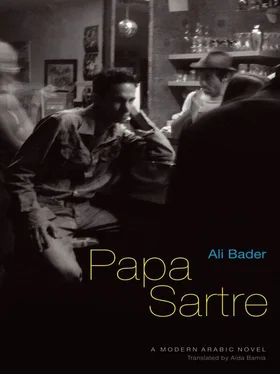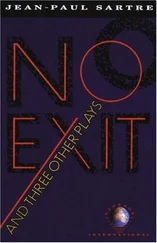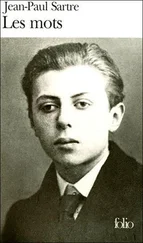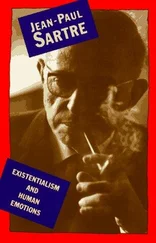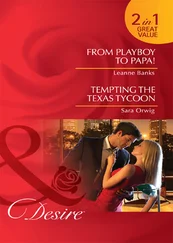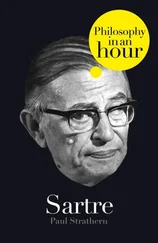8
Ismail Hadoub was like many other men of letters of modest origin who saw literature and art as a way to gain entry to posh salons and luxurious houses. Art to them was a means to embellish their lives and to help them win over beautiful rich girls. They’d try hard to please such girls, sacrificing their own lives to do so, and when the girls aged they’d look for pleasure with other, younger women. Ismail wanted to use literature to avenge his dignity and build his reputation upon someone else’s glory. He wanted to be imposing and rich, to try everything and get everything. He wanted to quench his thirst in life, to arm himself with ideas. He wanted to suck and swallow life, not merely think about it. He wanted to live on other people’s accounts, at the expense of merchants, intermediaries, real estate agents, and politicians. Money was the only way to conquer life, and the only way to get money was through literature. But literature required money — checks and cash.
It wasn’t an easy equation — not quite as simple as he first thought it would be. Those politicians and merchants who are well trained in the art of exploitation and extortion are not as naive as he thought. They’re shrewd and smart. They know how to use others for their own interest and to serve their own plans. They need other people to promote these schemes. They then reward them for their efforts, but the rewards are usually poisoned. Those followers are cheated, and any talk of dignity, honesty, pride, or self-respect is severely punished. The powerful often disapprove of or despise those who use literature to attain wealth. Money is thus in the hands of the wealthy, and getting there was not easy. The wealthy are whimsical and always have the smell of meat on the tips of their fingers. Sometimes they give the morsels to the barking dogs, sometimes to the curs who drool in front of them. Dogs are probably the only ones who know that barking, sniffing, or praising does not pay. This is the power of the rotten creatures over the loose creatures, the power of the masters of pleasure over the weak.
9
Ismail Hadoub had totally changed. His work with Shaul at the store satisfied his vanity and laziness and tamed his violence. He was attracted to the intellectual life, which he encountered through his friendship with Shaul and by living in his house. He knew, however, that Shaul would never forget his protégé’s modest origins or the rags he had been wearing before they were thrown into the garbage bin in front of the mansion. Shaul believed that a human being is the product of his conditions and habits. He also believed that an easy life protects a person from his aggressive nature and bestiality, and that it refines and educates him. But he was also aware of the shortcomings in Ismail’s knowledge. Ismail finally understood that Shaul was not going to leave him everything after his death as he had initially expected. He understood that Shaul would never willingly bequeath to him the store, the mansion, or the money in his bank account.
In fact Shaul had put everything in the name of his wife, the woman who had run away and cheated on him — rubbing his nose in the mud, as he used to say. The money he held overseas he put in the names of his sons, both of whom lived in London. A few properties were in the name of the Lithuanian mistress, whom he used to meet every summer in Russia. Ismail considered this arrangement stupid and a betrayal of Shaul’s principles. He believed that Shaul had the right to punish his despicable adulterous wife and to destroy her as she had destroyed him. Shaul, however, considered human beings to be slaves guided by circumstances that mold them the way the fingers of the hand clear mud of its impurities. Shaul didn’t believe in Ismail’s genius. He never forgot that no matter how much he changed he would remain a peddler of pornographic photographs, and he would not forget that it was Shaul who had pulled him out of his misery and made something of him. Ismail had no right to the wealth that Shaul had acquired through his efforts and a life of struggle. Ismail’s hopes to inherit Shaul’s money dissipated, and the dreams he enjoyed his first night on the comfortable bed in his benefactor’s mansion turned into a nightmare on his last day there.
Ismail became unequivocally aware that happiness was a concrete matter, not a theoretical one. He believed that money was to be spent, not accumulated and saved, the same way the eyes could not look at the glittering sight of gold without tearing and a man could not view a woman without desiring her. He realized that there was another kind of life, other than the miserable, dry, and empty life of culture provided by Shaul. His life with Shaul was joyless. He was deprived of women, drinking, and general hell-raising. He was naturally inclined toward the pleasures of life. His heart melted before succulent, intoxicating things and was deeply moved by the pursuit of shiny, velvety objects that hid, under their coarseness, tenderness, sex, and drugs. Those were the things Ismail believed in, loved, and instinctively sought out. Ismail wanted to attain wealth, receive admiration, and enjoy prestige at any price. He wanted to reach the summit, to enter the abode of pleasure. He wanted concrete matters, not those things that only the mind could reach. He was no longer satisfied simply to fill his stomach; he had gotten used to better things. He was getting ready to move to the next level, and he knew that this would not happen with Shaul’s help. First, Ismail mentally dismissed his benefactor and then began searching for someone else. And that was Abd al-Rahman.
10
Ismail Hadoub left Shaul to join Abd al-Rahman. In this move Ismail adopted the methods of a hunter, one who wants to catch life with philosophy rather than hunt philosophy through life. He followed Abd al-Rahman because, unlike Shaul, he talked about life in a practical and appealing way, with precision, elegance, and humor. Shaul lacked all those attributes and so did his culture. Abd al-Rahman’s philosophy was more attractive because existentialism was clearer than Marxism. For example, whenever Abd al-Rahman said “nihilism” it meant that he wanted to get drunk, and whenever he said “freedom” he was planning on sleeping with a woman, and “commitment” meant an appointment at a bar or nightclub. This is how Ismail explained Abd al-Rahman’s philosophy to one of his new friends at the Coronet bookstore.
Abd al-Rahman’s philosophy contained enjoyable things, while Shaul’s happiness colony required struggle and fighting. One could struggle and possibly die without ever attaining that stage; what kind of paradise was this? In immediate taste and gratification Ismail found a rich interpretation of life. He cringed at delayed enjoyments.
Ismail’s escape from Shaul was first met with a smile from the philosopher, but later he welcomed him without reservations. He reacted to Shaul’s anger by supporting Ismail, who had opted for freedom, and because, as Abd al-Rahman explained to his disciple, freedom is a commitment. Ismail on the other hand considered his personal choice an echo of lingering memories. He stood before the philosopher and told him that he had been a philosopher since infancy. When his words were reported to Shaul, his former benefactor commented sarcastically, “Do you really believe that this ass was wrapped in a proper layette like normal human beings? He’s a bastard. His prostitute mother abandoned him in a stream.”
Ismail left Shaul propelled by a stubborn idea: he was seeking love, sex, alcohol, and other pleasures. As for Abd al-Rahman, he did not see any dramatic aspect to Ismail’s decision. He considered it a normal inclination on the part of all human beings to indulge in life’s pleasures. It was obvious that the fulfillment of that inclination required spending time in cafés and at philosophical nights of debauchery at the Grief Adab nightclub. In brief, it was a life of drinking, sex, and disregard for all traditions.
Читать дальше
